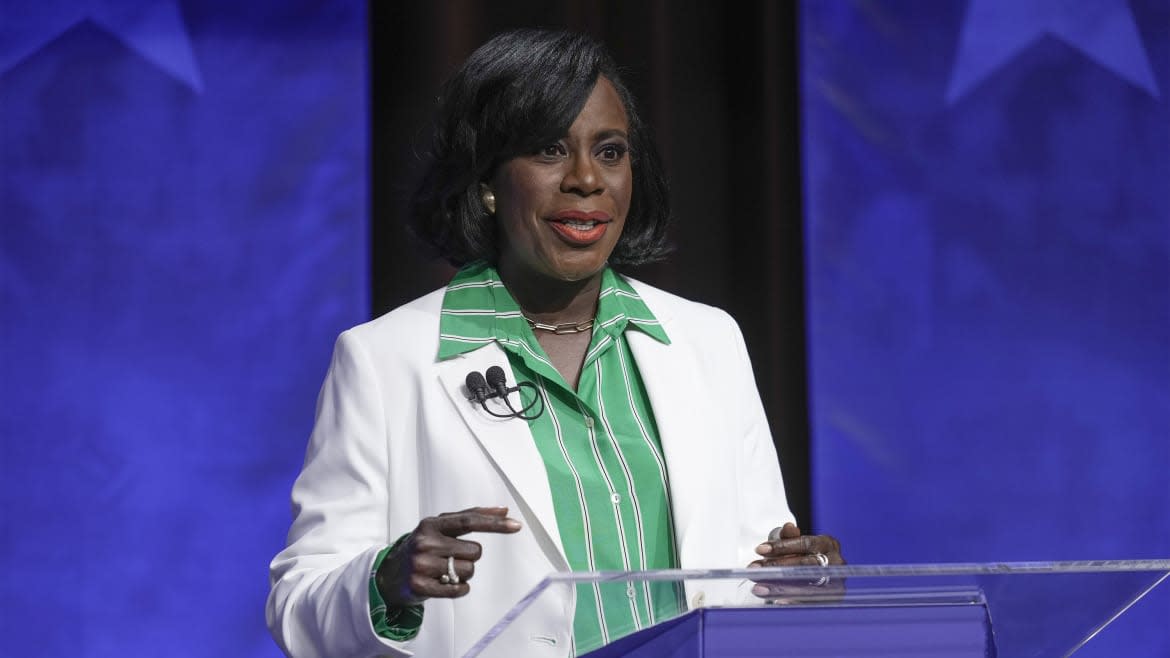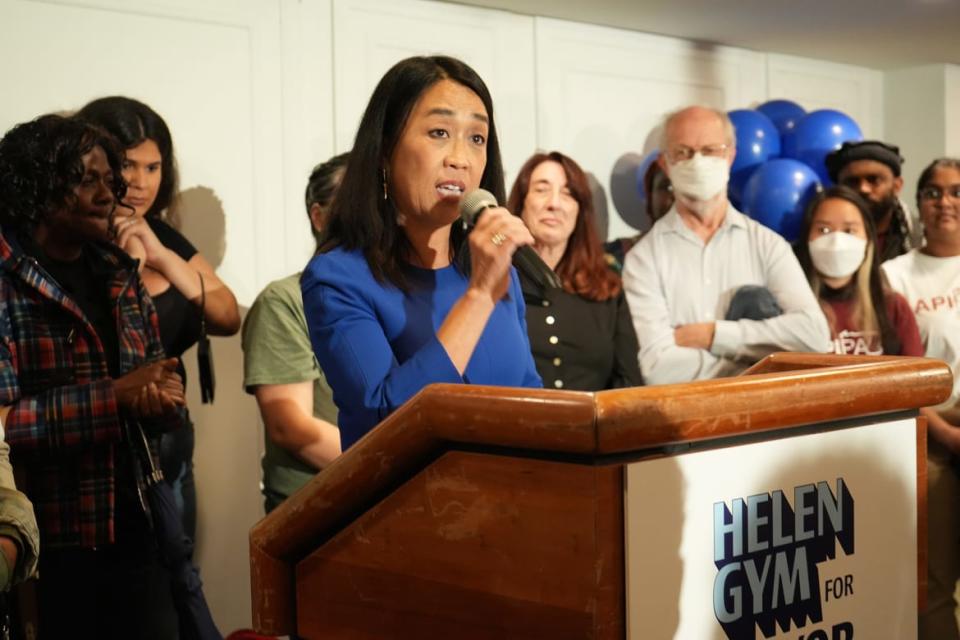How Philly’s Black Moderate Mayoral Candidate Beat a Bernie Sanders/AOC-Backed Progressive

- Oops!Something went wrong.Please try again later.
- Oops!Something went wrong.Please try again later.
- Oops!Something went wrong.Please try again later.
- Oops!Something went wrong.Please try again later.
If you were anywhere but Philly during Tuesday night’s primary election, you were probably shocked that Gym wasn’t elected as the City of Brotherly Love’s 100th mayor.
National headlines would have had you thinking that Gym, an activist-turned-politician, was going to complete a current wave of progressive mayoral victories across the country. For all of the momentum she had gotten leading up to Primary Day (a rally of over 1,200 people that included appearances by Rep. Alexandria Ocasio-Cortez and Sen. Bernie Sanders, endorsements from Hollywood actors), Gym came in third place.
The winner? The veteran Democratic establishment darling Cherelle Parker, a moderate who is now the first woman, and fourth Black candidate, to ever clinch the Philadelphia Democratic mayoral nomination. Given the electoral ratio of 7-to-1 local Democrats in comparison to Republicans, she’s highly expected to win in the November general election.
Philadelphia Eagles Won Big Sunday Night. So Did White Privilege—Again
Parker, a longtime political powerhouse who had previously served as a Pennsylvania state representative and city councilmember, ran on a campaign that was tough on crime (such as calls to increase police funding and enforce “constitutional” stop-and-frisk) and took stanch stances against safe-injection sites and other progressive policies.
Cherelle Parker isn’t the exact carbon-copy of New York City Mayor Eric Adams, but her victory mirrors that of his: A charismatic, Black centrist who ran on a practical platform that addressed crime and kitchen table issues—while their more progressive challengers split the vote (runner-up candidate Rebecca Rhynhart was seen as a pragmatic progressive alternative compared to the more radical Gym). Unlike the Big Apple, Philadelphia is one of the poorest major cities in America with a skyrocketing gun violence crisis that impacts its majority Black and brown demographic.
Voters wanted a candidate who spoke directly to them in ways that were both aspirational and reasonable. Like Adams, Parker had the type of hometown swagger that her opponents just couldn’t compete with. It should also be noted that Parker’s salary was more similar to everyday voters than her bigger six-figure/millionaire opponents.
As for Gym, the talk wasn’t always the walk with her in Philly.
Here’s Why a Former Cop and Republican Won Big in AOC’s District
While she nationally touted woke views, Gym was viewed as a hypocrite among undecided voters. The progressive who often criticized the “status quo” kept close ties with local establishment heavyweights like former labor boss “Johnny Doc” Dogherty and disgraced former city councilmember Bobby Henon—who were both convicted in 2021 of several political corruption charges. In January, she faced backlash after publicly boycotting the conservative-leaning Union League venue for honoring Gov. Ron DeSantis (R-FL), then showing up to the same club a week later.
Gym’s campaign strategy would have been perfect for a U.S. congressional seat, but it tanked for a citywide race.
Her large endorsements from outside progressive interests didn’t resonate large enough with local voters. Whereas Parker got a huge backing from labor groups and Rhynhart was endorsed by three previous mayors—Gym had polarizing liberal organizations and celebrities supporting her (Rep. Jamaal Bowman, the Working Families Party, Reclaim Philadelphia, Jane Fonda, Mark Ruffalo, and Marc Lamont Hill, to name a few). Although she was the highest vote-getter when she was reelected to the city council at-large in 2019, such fire for Gym wasn’t maintained after years of a grueling pandemic, rise in crime, and shaky progressive movement.

Former Philadelphia city councilmember Helen Gym.
What’s also being ignored nationwide is how Philly actually votes. Unlike in a lot of other major cities, there’s no ranked-choice voting and/or runoff elections that made all the difference for progressive candidates like Brandon Johnson to be elected mayor of Chicago and Karen Bass to win her mayor’s race in Los Angeles. Only the recently elected progressive Boston Mayor Michelle Yu was able to come out on top in her race without such advantages. It’s clear that Gym might have fared differently if such factors played a role in her’s.
Jill Biden Insulted the LSU NCAA Women’s Basketball Champs (and All Black Athletes)
Overall, the major takeaway is that not all cities are built the same. While it’s easy for national pundits to see one trend, there’s others that are also being ignored.
Beyond the progressive mayoral wave in some big cities, there was also a wide sweep of Black mayors, leading across the country as well. Right now, New York City, Los Angeles, Chicago, Houston, Atlanta, Baltimore—and soon, Philadelphia—are led by Black Democratic mayors. After eight years of Philadelphia being run by a white man, Mayor Jim Kenney, voters in a majority of color city went to the polls to elect a Black woman for the first time.
Perhaps such victories could speak to a sign of progress that’s less about political ideology and more about racial identity—one seeking to demand a seat at a table more diverse than before.
Get the Daily Beast's biggest scoops and scandals delivered right to your inbox. Sign up now.
Stay informed and gain unlimited access to the Daily Beast's unmatched reporting. Subscribe now.

